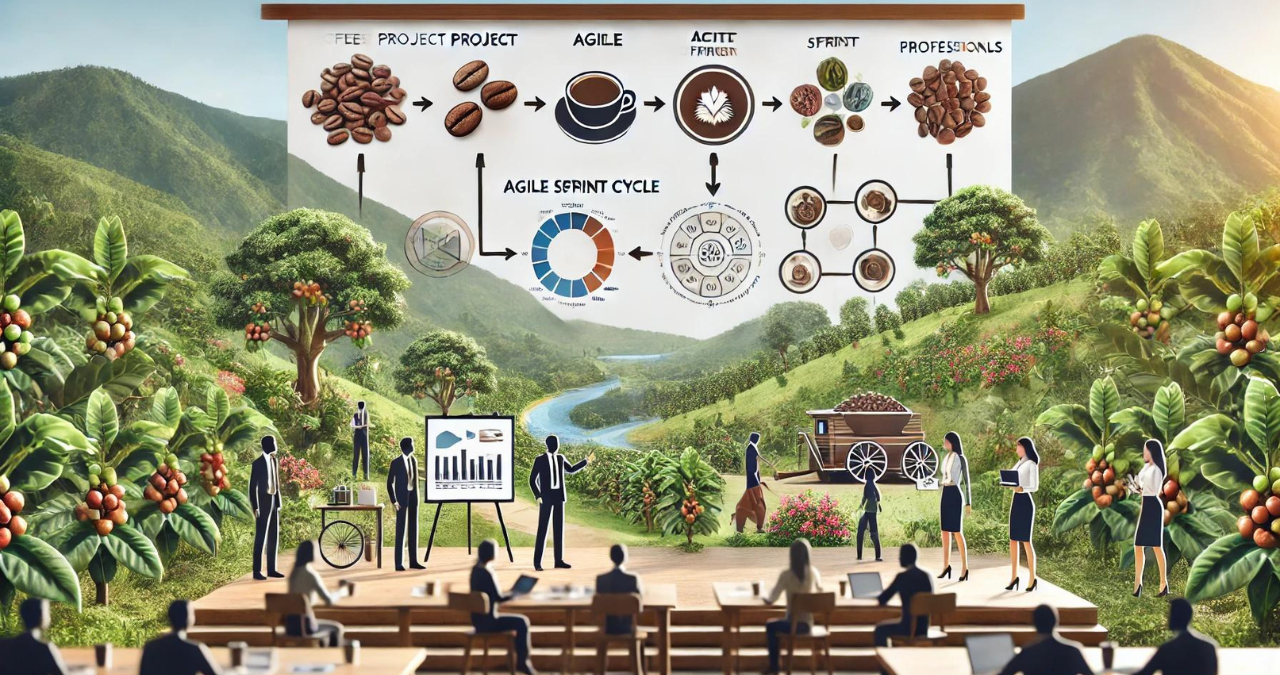Introduction
Amidst the lush landscapes of agile project management of coffee internationally in honduras, a significant shift is underway that could transform the coffee industry on a global scale. This shift centres around Honduran coffee producers and exporters adopting Agile project management techniques. Originally conceived for software development, Agile’s principles of flexibility, efficiency, and iterative progress are now proving their worth in the agricultural sector, particularly in the challenging arena of international coffee trade. This detailed exploration delves into the nuances of implementing Agile project management of coffee internationally in Honduras and how it’s making a decisive impact across the industry.
The Rise of Agile in Honduran Coffee Production
Honduras has emerged as a powerhouse in the coffee sector, known globally for its high-quality beans. However, navigating the complexities of international markets requires more than just premium beans; it demands innovative management strategies. With its adaptable and iterative approach, Agile project management is ideally suited to this task, allowing producers to respond swiftly to market fluctuations and environmental variables.
Agile Principles in Action
Adaptive Planning: Agile’s emphasis on flexible planning is vital in coffee production, where external factors such as weather conditions and market dynamics are unpredictable. By adopting short planning cycles, coffee producers can adjust their strategies frequently, ensuring alignment with current conditions and market needs.
Empowered Teams: Agile encourages forming cross-functional teams that combine various skills and perspectives. In the context of coffee, these teams include farmers, export specialists, quality control experts, and supply chain managers, all working collaboratively to streamline processes from farm to global markets.
Iterative Development: This principle involves breaking work into smaller segments that can be completed in short cycles or sprints, allowing for regular assessment and adjustment. For coffee, this means continuous improvements in cultivation, harvesting, processing, and distribution practices, all aimed at maximizing quality and efficiency.
Overcoming Implementation Challenges
The shift to Agile project management in the traditionally conservative field of agriculture involves significant challenges. Key among these is the cultural shift from traditional practices to a more dynamic and iterative approach. Educational programs and demonstrative projects are essential to showcase Agile methodologies’ benefits and build stakeholders’ trust.
Technology integration is critical, as real-time data and digital tools are pivotal in Agile frameworks. Investment in technology and training for local farmers and producers in its use is crucial to fully realize the benefits of Agile project management of coffee internationally in Honduras.
Global Impacts and Industry Transformation
Adopting Agile methodologies in Honduras is setting a precedent that could influence coffee production globally. By enhancing the responsiveness and sustainability of coffee production practices, Agile is helping to stabilize supply chains and ensure consistent quality. This benefits producers and exporters in Honduras and enhances reliability and trust for international buyers and consumers.
Future Prospects and Industry-Wide Adoption
The continued integration of Agile project management practices in the coffee industry promises to spur further innovations and efficiency improvements. As other nations observe the benefits realized in Honduras, similar adaptations could occur worldwide, potentially leading to a more resilient and sustainable global coffee industry.
FAQs
- What is Agile project management, and how is it applied in Honduras’s international coffee industry?
- Agile project management is a methodology that emphasizes flexibility, quick adaptation to change, and iterative progress through short cycles. In the international coffee industry of Honduras, it’s applied to enhance responsiveness to market demands, improve product quality, and ensure sustainable practices.
- Why is Agile project management particularly suitable for coffee production in Honduras?
- Given the volatile nature of both environmental conditions and international market dynamics, Agile project management enables Honduran coffee producers to adapt swiftly and effectively, ensuring competitiveness and sustainability in the global market.
- What are the tangible benefits of Agile project management for coffee exporters in Honduras?
- Benefits include increased adaptability to market changes, enhanced stakeholder coordination, improved product quality through continual feedback and adaptation, and more efficient resource management.
- What challenges do coffee producers face when implementing Agile project management in Honduras?
- Challenges include the need for cultural change among traditionally-minded farmers, the integration of technology in rural areas, and the development of expertise in Agile practices within the local workforce.
- How does Agile project management of coffee internationally in Honduras influence the global coffee market?
- It leads to more stable and responsive supply chains, higher consistency in coffee quality, and the promotion of sustainable practices, all of which contribute to a more reliable and ethical global coffee market.
You May Also Read: https://trendbullion.com/indirect-voting-for-dummies/




